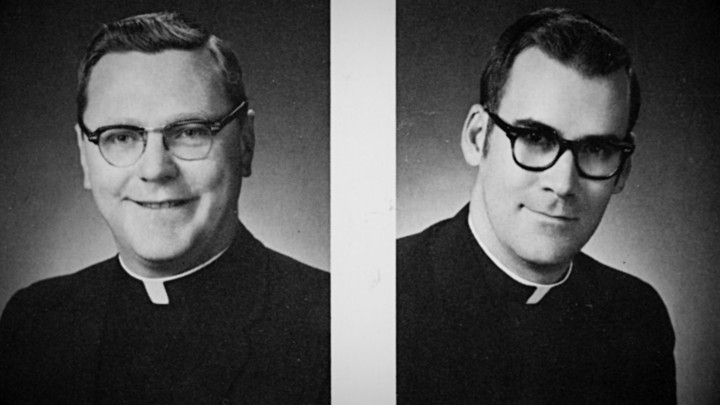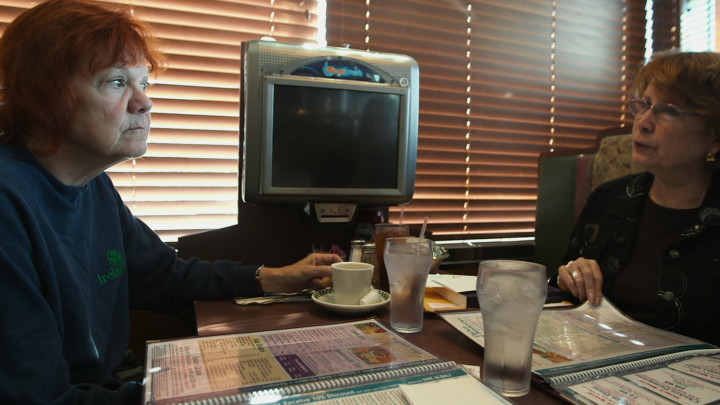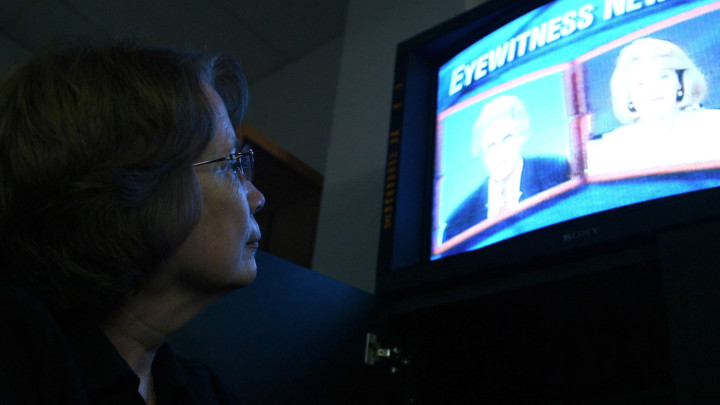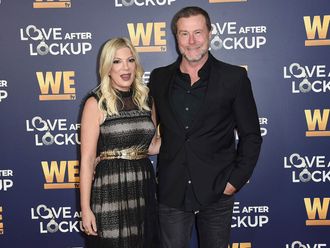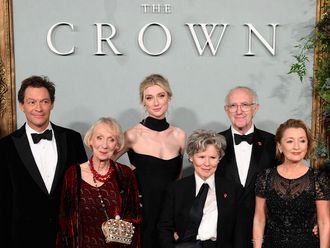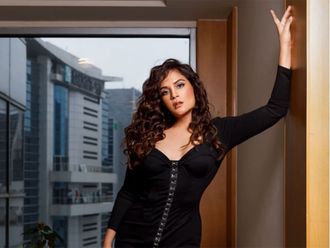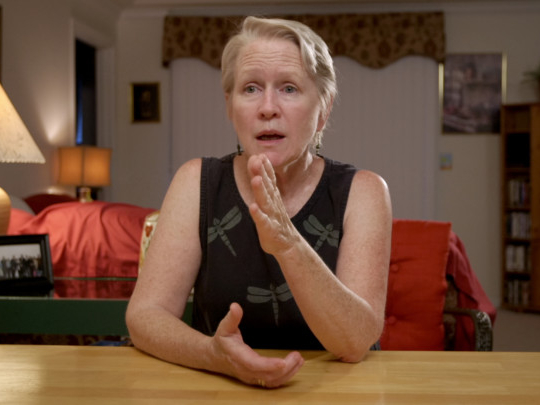
Victims don’t usually loom large in true-crime stories. Serial, which kicked off the current boom, didn’t leave a lasting impression of Baltimore teenager Hae Min Lee, who was killed in 1999. The podcast was really about whether the man found guilty of her murder, Adnan Syed, had been wrongfully convicted.
The same goes for HBO’s The Jinx, which was more interested in the bizarre, sinister Robert Durst than the people he allegedly killed. Viewers might not even recall the name of the dead woman at the centre of Netflix’s Making a Murderer, but they’ll certainly remember Steven Avery, who’s sitting in jail for her death. (It was Teresa Halbach, by the way.)
That all changes with The Keepers, Netflix’s new docuseries, currently streaming. The dead still can’t speak for themselves. But there are victims who give voice to horrific stories.
The ads for the series focus on the murder of a nun and teacher, Catherine Cesnik, who disappeared in November 1969. Her bludgeoned body was found a couple months later at a garbage dump not far from her Baltimore apartment. In episode two, however, The Keepers reveals that it isn’t just about Cesnik. It’s as much about one of her students at Archbishop Keough High School, Jean Wehner.
Wehner is the heart of the series, elevating it from a typical titillating whodunit to a devastating drama that will haunt viewers long after they’ve binged the seven instalments. Now in her 60s, Wehner is blonde and freckled, with an open, welcoming demeanour that’s all the more astounding considering everything she’s been through: As a student at Keough, she was routinely sexually abused by the school’s chaplain, Joseph Maskell, and his associates, including another priest, police officers and local businessmen.
A devout Catholic and an innocent teen, Wehner believed that the nightmare was penance for what Maskell told her was a sin: the fact that her uncle had abused her as a young child.
At the time, Wehner assumed that she was the only one the priest was assaulting. She wasn’t — but she kept it to herself, with one exception. When Cesnik asked if Maskell was making her do things she didn’t want to do, the girl responded with a silent nod.
Wehner buried her experience for decades, but the memories resurfaced in the early 1990s. During that time, she had another recollection: Maskell taking her to see Cesnik’s body and telling her she’d be next if she talked. Once the memories came back, Wehner went to the Baltimore Archdiocese, but when the church failed to acknowledge her ordeal, she initiated a lawsuit under the name Jane Doe in 1994. She and another woman were thwarted, however, by the Maryland statute of limitations. Meanwhile, the Catholic Church’s lawyers cast doubts on the veracity of Wehner’s resurfaced memories.
Filmmaker Ryan White (The Case Against 8) directed the series, and he found Wehner through his aunt, another Keough alumni.
“I keep describing her as honest, and it’s an ironic adjective because this is a woman who has been doubted her entire life,” White said. “But if you sit down with her for a few hours, you realise how honest and raw she is.”
The narrative is also told from the perspective of two other Keough alums who were Cesnik’s students, Gemma Hoskins and Abbie Schaub. The pair, who hadn’t known about the abuse, have become amateur sleuths late in life, trying to get to the bottom of a murder that police had once abandoned. (Since the series was filmed, Baltimore County Police have returned to the case, even exhuming the remains of Maskell, who died in 2001, to see if his DNA matched what was found at the scene of the murder; it didn’t.)
“I knew when I met Abbie and Gemma that that was cinematic gold,” White said. “It was such a fresh way of accessing a mystery like this — through the [point of view] of the victim’s students who cared very deeply for her and were saying this isn’t too late.”
Beloved nun
Former students, not to mention Cesnik’s closest friend and her younger sister, speak at length about the magnetic, beloved nun. The series includes audio of Cesnik reading a poem she wrote and excerpts from intensely personal letters.
But Wehner still has an outsize impact on the story, if only because she’s such an anomaly. Survivors of sexual abuse rarely open up about their ordeals, so it’s startling and awe-inspiring to watch someone speak so frankly in front of a camera. White knew that part of the story might be too much for some viewers to handle. True-crime fans can enjoy watching murder mysteries, perhaps in part because they can separate themselves from a victim who’s not usually presented as a three-dimensional character.
“But it’s a lot harder — and I’ve experienced this firsthand — to look at and talk about child sex abuse,” he said.
White left out certain details he thought would be too wrenching. He also included Wehner in the editing process to some extent. In one of the show’s many gut-punching moments, the woman reads from a letter she wrote to the Baltimore Archdiocese in the 1990s, detailing one of the awful ways Maskell abused her. Afterward, she begins sobbing. White knew that was a powerful moment, but he wouldn’t use it unless Wehner gave the OK.
“Contractually, once you film with someone you can use whatever’s on camera, but it was important for me to get her blessing,” he said. “I knew it was going to be painful for her and her family to watch, so I explained to her what I thought the importance of that was and she 100 percent agreed, which I think is so brave.”
Wehner’s courage is one of the lasting impressions of The Keepers. After years of being silenced and doubted, her forthcoming attitude comes off as nothing less than heroic. Her candour could have positive effects for sexual abuse victims who are on the fence about telling their own stories. Scott Berkowitz, the president of RAINN, an anti-sexual-violence group, says that whenever pop culture or high-profile cases shed light on abuse, the organisation sees an uptick in calls to its sexual assault hotline. After producers of The Keepers reached out to the organisation a few weeks ago, the hotline staff received extra training.
“I think that it may have a really significant impact,” Berkowitz said of the docuseries. “We’re expecting this will generate a lot of calls by viewers who want to talk about their own experience, many of whom will have kept it to themselves for many years.”
The Keepers also takes a detour into the recent successful fight in Maryland to extend the statute of limitations for children who endured sexual abuse (they used to have until age 25; now it’s 38). The ringleader of that bill was Del. C.T. Wilson, D-Charles, whose adoptive father abused him.
“I was dreading this day,” Wilson said of the release of The Keepers. He’s told his story many times before, but never so publicly. Even though he’s received thousands of letters from victims thanking him for opening up about his suffering, the humiliation he feels has never receded.
“Every time I’ve tried to tell my story, it’s because I just wanted people to not feel like they were alone,” he said. “That was the biggest issue with me — just feeling like I was the only one.”
All the victims in The Keepers exude a fierceness as they finally get to tell their stories after realizing that others endured the same sick cruelty.
Toward the end of the series, Wehner learns a bombshell about the church’s complicity in her suffering. After letting an expletive fly, she closes her eyes and collects herself. Later, she pours herself a big glass of red wine.
“Some part of this is really squelching people’s righteous anger and people’s need to make things public,” she says while standing in her kitchen. “Stop acting like we’re invisible. We’re not invisible.”



